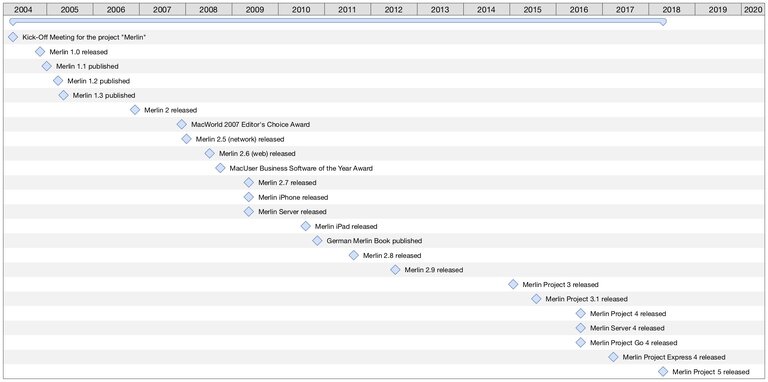The 10 Key Factors for Successful Project Management
Everyone has their own secret formula when it comes to project management. However, there are some key factors that can make the difference between the success and failure of a project. The following best practices are essential for the execution of a successful project. They help you to optimize your project processes without losing sight of your budget and deadlines.
1. Communicate Regularly With Your Team
You cannot no longer want to hear it, but it is still essential for successful cooperation: communication. Weekly meetings are great, but your communication efforts should go beyond that. You should be in daily contact with your team members, whether in person, by phone, or by text message. Ask them about their needs and concerns, ideas, or even weekend plans. Starting a conversation, even small talk, can lead to a massive moral incentive and really get the project rolling. In a direct conversation with the team members, questions can also be answered quickly and problems solved. In order to achieve this, you should have several communication channels open.
2. Delegate Sensibly
Many project managers are reluctant to give up work and responsibility. They are reluctant to delegate because they fear losing the overview. Don't be afraid of it. It is important not only to know when to delegate, but also to whom. Get to know your team inside out. Learn who is best at certain tasks and then assign them accordingly.
In order not to lose control despite delegating tasks, it is a good idea to use a common tool by also managing your team. How about a Kanban board in Merlin Project? Create the individual tasks as cards and assign them to the team member. The team members can move the kanban cards on the board according to the completion status. So you will keep the overview.
3. Set Milestones
Also milestones are a moral incentive in the project. They are basically the light at the end of the tunnel. Long and difficult projects can be broken down into smaller sequences to make them more manageable. Setting milestones allows you and your team to visualize milestones and create an efficient workflow.

For us at ProjectWizards, milestones are, of course, always releases of new functions in Merlin Project. But also milestones of company development and team building, such as a new employee's first day of work or the start of one of our regular team meetings, are included. In other words, things that deviate from the daily tasks. Milestones ensure that everyone strives to achieve these small intermediate goals and that the work feels fresh.
4. Organize Everything
Whether it's your schedule or your weekly meetings, organization is the key to avoiding chaos. It's easy to get lost sometimes, especially when you're working on multiple projects. Make sure you not only have a clean and organized workspace, but also a schedule for each project. Make it easy for team members to see what's going on. The organization keeps everyone up to date, so all the necessary documents and tools are easy to find and easy to understand. If you organize yourself before the project starts and stay organized throughout, it will be a little less stressful for everyone.
5. Conduct Kickoff Meetings
What happens if the foundation of a house is crooked? Then it affects the whole house. You should also make sure that everyone has the same level of knowledge when starting a project. A kickoff meeting is the perfect way to achieve this. Hold such a meeting before each project so you know everyone is on the same page and has all the information they need. Share all the details and plans for the direction of the project so that everyone has a roadmap. Make it clear and concise so that no one is confused.
Merlin Project is ideal for projects of any size and complexity. From a simple birthday party to tours of great world stars, from a small family home to large objects in space or from the development of a website to special software used worldwide.
Convince yourself and start your free 30-Day Trial today.
6. Keep an Eye on Everything
This is something quite different from the organisation. Keeping track not only refers to resources, documents and budget, but also to your time. You will want to access all this information later! Your time is valuable. So if you track projects and compare them with the time of different projects, you can create more precise project plans in the long run. With accurate tracking and documentation, you will never question the details of a previous project.
7. Create a Detailed Project Plan
It is not enough to simply enter tasks into a Gantt chart. You have to involve your team! Create detailed planning by allocating resources, scheduling meetings, and using any information you find useful. When you're working on a large project, there's never enough detail. If you create your plan clearly from the start, things will get a little easier later.
8. Ask for Feedback
Ask your team if what you are doing provides them with sufficient support to work at their best. You may not notice it, but there is always room for improvement. Ask clear and specific questions and you will get clear and specific feedback. If you leave your ego outside, people will feel comfortable expressing critical feedback. And as soon as you have feedback, don't ignore it. Make the changes that will help your team work better.
9. Celebrate the Completion of the Project
Take some time for the follow-up, talk to the team about what went well or badly and what can be improved next time. Learn a lesson from failures.
Most importantly, celebrate project completion with the team. They have made it through all the ups and downs of the project and have come to the top as a team. That's a reason to celebrate!
10. Practice Over and Over Again
Your goal should always be to look for ways to improve. Using the key factors in project management described above will certainly help. Practice them at every opportunity. Project management is a learning experience, so don't be afraid to learn! Even if a project has not been that successful, you can still learn lessons for future projects!

